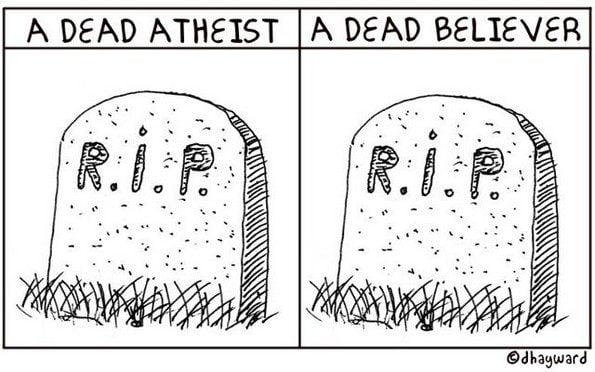
I don’t want to die and neither do you.
Another family member died. He was 50 and suffered greatly for over 20 years.
Maybe death was a release for him, I don’t know. The preacher at his funeral said it was. All I know for sure is that he is dead and he ain’t coming back.
People say his suffering is over. They speak of him being in a better place.
He can’t speak for himself on these matters. He is dead.
Maybe he would be willing to suffer as long as that meant he could live another day.
Maybe he would choose this life, the only reality he has ever known, over a promised, never-seen, life in a better place.
All of us seem to think that we know what the dead would have wanted.
Have you ever thought about what it means to be dead?
I have.
Perhaps I am a bit morbid, too introspective for my own good.
I have had those moments in the still of the night, moments when I think of being alive one moment and dead the next.
The reality of non-existence.
In a split second, going from a living, conscious, thinking human to nothing.
I am a glass half-empty kind of person, a pessimist and a realist at heart,
Instead of focusing on all my relatives and acquaintances who have lived 70, 80 or 90 years, I focus on those who haven’t.
Dad was 47 when he died, Mom was 54.
I had several cousins who died in their early 50s.
One of my uncles, in his 30s, was murdered.
My sister-in-law died in a 2005 Memorial Day motorcycle accident, She was 43.
My best friend’s sister, a girl I went to school with in the 1960s, died in her early 50s.
I could go on and on…
These deaths are poignant reminders of my own mortality.
Even if I live to age 70, I have 11 years of life left, just short of the amount of time we have lived in our present home.
I don’t think I will live that long. Maybe I will. I certainly hope so, but my body tells me not a chance.
Despite the pain and increasing loss of mobility and cognitive function, I still want to live.
Maybe there will come a day when I won’t want to live any longer. Maybe not.
Today? I want to be counted among the living.
The truth is this: I fear death.
Death is the one experience that no human, including Jesus, has ever come back from to tell its story.
I fear the darkness and finality that death brings.
Fearing death is quite normal.
Who wants to trade a living existence for the emptiness of the grave?
Someone is sure to say, I hate my life, I wish I were dead.
Fine, kill yourself.
I thought so…
Yes, life can suck, life can be unbearable, and life can bring agony and suffering at every turn.
Yet, we still want to live.
Religion exists for the purpose of calming our fear of death.
Forget all the doctrines, religion is the antidote for the frightening reality of death.
Evangelicals Christians love to talk of being ready to die. Take me Lord Jesus when it is my time to go, they piously say.
They speak with big theological words about not fearing death because of Jesus who conquered death for them.
They speaking of their readiness to die for their faith if called on to do so.
Yet, few Christians seem to be in a hurry to die.
Christian want to live just as everyone else does. Don’t listen to their words. Watch how they live.
I find no comfort in religion, nor do I find any solace in thoughts of returning to the collective universal consciousness when I die.
All I know for sure is that dead is dead and I am not ready to become an urn of ashes scattered along the eastern shore of Lake Michigan.
As the Petra (a Christian rock group) song says, I want to live until I die.
